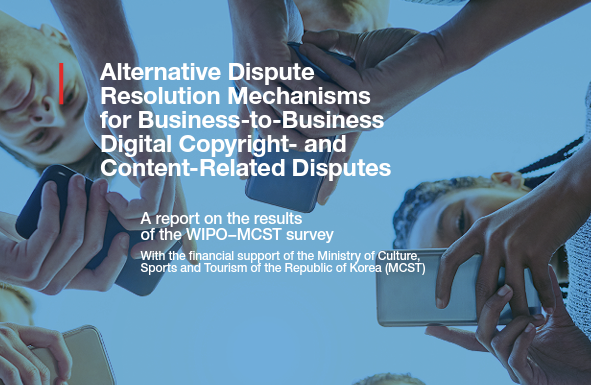Faculty members co-author report on use of Alternative Dispute Resolution (ADR) mechanisms in B2B digital copyright disputes
Associated people

B2B copyright disputes tend to arise across a wide range of sectors, including advertising, animation, broadcasting, films, database protection, publishing (including e-books), mobile phone applications, musical works and sound recording, photographs, software, television formats and video games. There is a growing interest in ADR mechanisms, such as mediation, arbitration or expert determination, for resolving such copyright disputes. These procedures have the potential to be significantly cheaper, faster and more flexible, especially in a cross-border context. The increasing adoption of online dispute resolution (ODR) tools, such as online dockets and videoconferencing tools, has added to ADR’s appeal. The study analyses the results of a survey on B2B copyright dispute resolution, drawing on over 1,000 responses from a wide range of stakeholders across 129 countries. It provides the background legal and institutional context, describing ADR options that exist within national or regional legislation, as well as initiatives by leading intellectual property offices around the globe. The study was supported by the Ministry of Culture, Sports and Tourism of the Republic of Korea (MCST).


